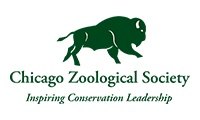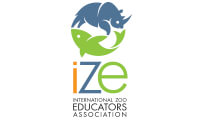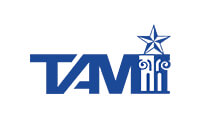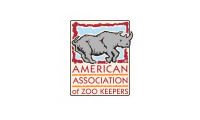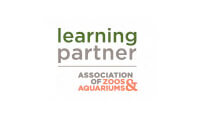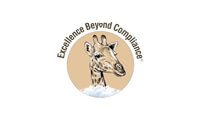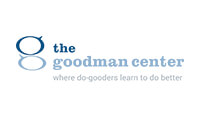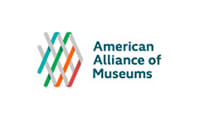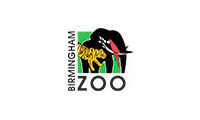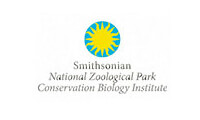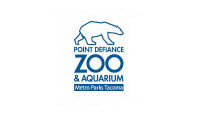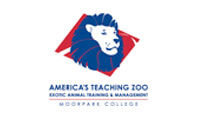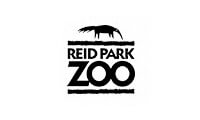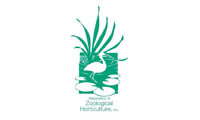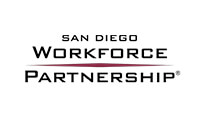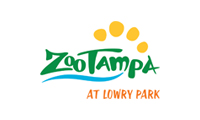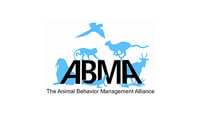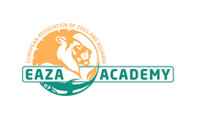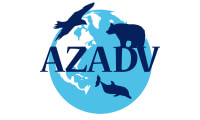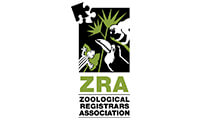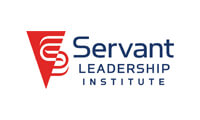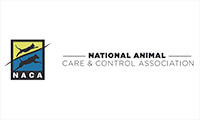Getting Better All the Time
Learning From Life Itself Helps Us Positively Impact Animals' Lives
By James F. Gesualdi
To keep ahead, each one of us, no matter what our task, must search for new and better methods—for even that which we now do well must be done better tomorrow.
—James F. Bell
Life is the best teacher.
—Alina Stanek
Life experience is the best teacher.
—David Letterman
Teach Me Life, My Time Is Yours.
Life is indeed the best teacher. Thank goodness this is true, because life has helped me to continue to learn, even as many of my greatest mentors and teachers have passed from the world (though they remain in my heart). As life marches on, new mentors and teachers appear including energetic, fresh-thinking mentees who can be as equally insightful and influential to their mentors.
Life teaches us, whether we like it or not. We can pay attention and think about life's lessons and what they mean for us, or remain blissfully ignorant and wonder why we struggle so much.
Life requires no application or formal tuition, but we pay the price for learning through the time and work we trade. There need not be an academy or school to excel, but this column can help us be ever mindful.
Reading and Listening Are Some of Life's Ways of Accelerating Our Learning and Growth.
Listening to and/or reading great works is the fast lane to growth. We can immerse our minds and ourselves in others' experiences, ideas, triumphs, and tragedies to help us in our own lives and work. When reading and/or listening time is severely limited, I seem to atrophy mentally and spiritually. The more I read and/or listen, the better I feel and the sharper my thinking. One good practice employed through the years is "the reading surge," or reading for answers. When confronted with a particular challenge or situation relating to animals, seek out good books, programs, podcasts, and other resources on relevant subjects, and study them. This has helped me help others get through challenges and crises, among other difficult developments. Each "Getting Better All the Time" column endeavors to share many lessons from these informed courses of self-study.
Adversity Is a Form of Advanced Study.
Life-related struggles forged Excellence Beyond Compliance®. It first started to come together in the late 1990s, while working with zoological organizations that were having sharp differences with the U.S. Department of Agriculture (USDA) Animal and Plant Health Inspection Service (APHIS) Animal Care unit over Animal Welfare Act (AWA) compliance issues. As in most cases, both sides had their points, but serious issues remained. Things needed to get better, and more was required than short-term fixes. Causes and concerns were identified, examined, understood, and addressed, and yet even more was done. Measures and plans for growth and continuous improvement were often developed over time. The philosophy and good practices were refined and expanded. Most importantly, animals' lives were improved and protected.
Excellence Beyond Compliance Practitioners Make Their Organizations Future-proof.
Excellence Beyond Compliance is an evolving and effective approach based on a lifetime of working on the most difficult and heart-wrenching situations in the zoological world. Because of its unending critical self-examination and continuous improvement, it helps you advance animals' interests, protection, and well-being every day. Here are just several of many ways Excellence Beyond Compliance prepares zoological organizations to navigate dramatic cultural and regulatory changes.
- Advocacy: Animal welfare officers are the ultimate advocates for the animals in your care, and all those concerned about them. In essence, they are animal advocates or ombuds. Similarly, compliance officers advocate for the importance of proactively maintaining and exceeding ongoing Animal Welfare Act (AWA) compliance—not as an end, but as a starting point.
- Accountability, transparency, and the public trust: Board-led animal welfare initiatives and actions, annual reports on animal well-being advances, third-party reviews (including public disclosure of, at very least, existing good practices and committed improvements), post-inspection self-certified compliance reports, and other measures take responsibility, provide accountability, promote transparency and uphold the public trust. This builds credibility, which becomes vitally important when adversity hits and you need it most.
- Enforcement: Enhanced enforcement of the AWA is welcomed by high-performing organizations employing compliance officers, utilizing good practices, and voluntarily seeking guidance from the U.S. Department of Agriculture, especially before problems arise.
- Licensing: The new licensing regulation, which requires licensees to demonstrate full AWA compliance every three years (which should be evident on every inspection) to obtain a completely new license (as well as other new safeguards), represents the most significant change under the AWA in many decades. Zoological organizations with regular self-inspections and annual reports on improvements, utilizing self-certified compliance reporting (after inspections and animal welfare/zoo, aquarium, and/or park improvement plans), and robust animal welfare concern/compliant review and resolution actions are well prepared for new licensing inspections. These good practices maintain vigilance, and fuel ongoing improvements in a manner that fills the "accreditation gap" in the period between accreditation reviews.
- Species-specific changes, such as special licensing authorization for some groups of species, and the new bird regulations: Going beyond AWA compliance and professional accreditation/certification standards often means regulatory changes may simply codify or even validate what you are already doing. With respect to the imminent new final rule on birds, Excellence Beyond Compliance has long recommended considering your care and treatment of each animal and every species as covered under the AWA an integral part of your animal welfare/well-being program. Having done so for years, implementation of the new bird regulations will be much smoother.
The Time Has Finally Come for New Bird Regulations.
Within the next month, the new bird regulations will be published, and the final substantive requirements and time frame for the effective date will be clear. Thank you to all those who brought this about, and the USDA APHIS Animal Care unit for making it happen within the legally required deadline. (For more on the proposed rule, see Joyfully, Lovingly, and Creatively Using Our Lives and the Animal Welfare Act to Safeguard Animals and People, May 2022, available here.) To stay ahead of getting ready for the new bird regulations consider these actions.
Upon publication of the final rule/new regulations...
- Study the requirements, and assess your state of compliance through self-inspection and a needs assessment.
- Consider asking similar nearby facilities to send representatives with relevant expertise to "inspect" your birds and all related operations. Alternately, ask if they could conduct a virtual inspection. Either way, you'll want to get additional, authoritative feedback and suggestions, in advance of the effective date of the new regulation.
- Ask your inspector to review your birds and associated facilities, programs, staff, and training before the regulation is effective. This can be done informally when they are already on site for an inspection.
- Identify needed and desired changes and improvements. Prioritize them, and allocate or plan to allocate funding and resources, with concrete time frames for completion. If the time frame extends until after the effective date of the regulation, consider discussing a finite extension of time to commit to the completion of the improvements.
- Freshen up and expand your database/library of credible resources—including animal care and husbandry manuals and research—on each bird species in your care. Make sure all staff are well acquainted with these resources. These may be critical in educating/informing inspectors about species-specific science-based information underpinning your policies and practices.
- Start training staff, with help from accrediting/certifying and professional associations and others, including avian experts.
- Have animal care and veterinary staff review behavioral and medical conditions/status of birds, especially those with special needs or unique conditions, so as to be familiar with their life history and individual records if/when an inspector reviews or questions that bird's condition or situation. Experience has demonstrated that such information, when forgotten or not presented during inspection, may require an inspection report appeal to address substantial differences; but it is cost- and time-effective to resolve such matters at the earliest possible stage—and that means greater resources for the animals themselves.
USDA seeks input on animal handling, training of staff, categorizing species based on potential risk, public contact and environmental enrichment in wide-ranging notice of potential rulemaking, which presents a great opportunity to learn more from our experiences and help teach ourselves, the agency and others.
In a January 9, 2023 Federal Register Advance notice of potential rulemaking and request for comments, USDA APHIS Animal Care publicly launched a comprehensive review of many key components of the Animal Welfare Act regulations. The Federal Register notice followed a pre-publication agency announcement to stakeholders. In the agency announcement, Dr. Betty Goldentyer, Deputy Administrator of APHIS for the Animal Care program, noted the potential dangers that wild and exotic animals, their handlers and the public may encounter when in "direct contact." Dr. Goldentyer further stated, "With public feedback, we are working to strengthen our current standards and better protect animal welfare and public safety." Key considerations include: public handling of wild and exotic animals, training of associated personnel, and changes to environments to promote animal psychological well-being. The agency suggests three categories of species based on potential risks. It also identifies different types of public contact including full contact activities, protected contact, walk/drive-through exhibits and performances. Comments are currently due by March 10, 2023.
There is a lot to think about and explore with regard to the announcement and the notice. In short, this is an outstanding opportunity to gather information, grow in understanding and share expertise to help lead the way in advancing the Animal Welfare Act regulations in a manner that enhances animal well-being and protects animals and people. That is exciting, meaningful and vitally important for animals. More to come...
Updated, Streamlined Principles of Constructive Engagement (for transforming challenges into opportunities to help animals) are Now Available to Start the New Year Right!
- Think about ways in which you can improve, and how the situation can be used to help animals. Review the situation to develop an accurate and honest sense of the causes underlying the challenge. Work through the principles collaboratively, whenever possible. Consciously examine how you can improve, and intentionally seek ways to use the situation to help animals. This puts you in the best possible frame of mind and, with persistence, unlocks ideas for improvement.
- Make those ideas even better, and put the best ones into a plan. Take the best ideas and develop a plan of action.
- Take action. Act on the plan. Make it happen.
- Keep thoughts and actions focused solely on getting better and helping animals. Remind yourself of this constantly. Focus on getting better and serving animals.
- Be grateful that you can change yourself for the better and, in doing so, help animals. We are all very fortunate to be able to use and improve ourselves in order to better serve and help animals. Be ever grateful, continuously improve, and make an even greater difference in serving animals and their interests, protection, and well-being.
—Adapted and revised from the November 2015 "Getting Better All the Time" column, Turning Challenges into Opportunities: The Principles of Constructive Engagement (read here).
Life Teaches, We Learn and Give Our Lives in Service to Animals.
When we pay attention, learn, grow, and improve, we can keep on making things better for the animals we love. That, understandably, is one of the many things that inspires us to carry on and move forward. It makes what we do even more special, because we live life more fully when we grow and expand our awareness and capabilities. Life has ever-greater meaning when we continue to invest ours in serving animals with great compassion, love, and respect.
Don't fear experience. Embrace each one as a gift, a teacher, a step to get closer to where you want to be and who you want to become.
—Toni Sorenson
With gratitude to Doug and Mindy Hayes, whose lives and decades of service and self-sacrifice have inspired and taught me so much about serving others, fixing things, and how that makes everything better.
© 2023 James F. Gesualdi, P.C. The opinions expressed herein are solely those of the author. This is not, nor should be construed as, legal advice.

